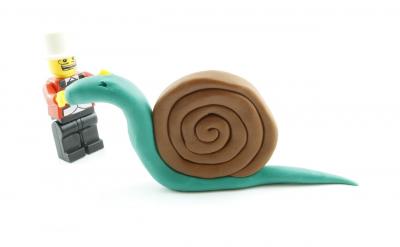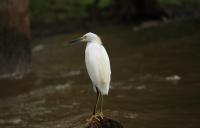高一英语下册必修三总结

篇1:高一英语下册必修三总结
1.高一英语下册必修四教案
本单元紧扣“女性”这一中心话题,通过介绍几位生活在不同国度的杰出女性,探讨女性在社会生活中的地位、价值和贡献,关注她们所面临的困难,讴歌她们在社会各个领域的成就。学习本单元内容有助于提高学生对妇女的社会角色的认识,培养学生(尤其是女学生)的自信心、事业心和社会责任感,建立正确的性别观和社会观。
“热身”(Warmingup)部分要求学生评论课本列出的六位女性,提出自己的观点和理由。该部分呼应了模块一中第五单元NelsonMandela-amodernhero的“读前”部分。在学习这一单元时,学生们经过讨论已总结出评定伟人的标准。因此,在教本单元时,教师可以让学生沿用这一标准,并针对本单元具体内容进行讨论,当然,学生也可以提出自己的看法。
“读前”(Pre-reading)部分提出了两个问题:简·古道尔为什么不在大学里进行专业的生物学研究而要到非洲去研究黑猩猩?你同意她的这种做法吗?这两个问题还要求学生思考两种不同的研究方法(即实验室研究法与野外研究法)的优势与不足之处。然后,要求学生看课文中的标题和插图。
“阅读”(Reading)部分以《非洲野生动物保护者》为题,描写了简与她的同事们在非洲原始森林观察非洲黑猩猩的一个片段,并阐释她从事这项工作的重要性以及她所取得的成就。尽管他们在野外的考察工作又脏又累,但他们觉得这样做是值得的,他们有一些重要的发现是在学校的实验室不可能获得的,这正是简·古道尔要到非洲原始森林来的原因。她通过许多年的研究,帮助人类了解黑猩猩的生活习性。她强烈呼吁让动物回归自然,反对用动物作广告或从事娱乐活动,她力图唤起人类理解动物、尊重动物和保护动物的意识,而她所取得的成就无疑是对有进取心的广大妇女的莫大鞭策和鼓舞。“理解”(Comprehending)部分有四项练习,分别从不同层面引导学生进行阅读。前三个练习通过选择题、归纳段落大意和填表格来检查学生对阅读篇章的表层理解程度。练习四要求学生必须在深刻理解课文内容的基础上,对课文中简的行为表达自己的看法。通过讨论这四个开放性的话题,可以坚定学生保护动物的信念。
“语言学习”(LearningaboutLanguage)部分主要着重于词汇和语法的训练。词汇学习部分主要通过词语释义、同源词对比、反义填空等多种形式的练习帮助学生熟悉构词法、重点词汇以及短语。语法部分紧扣“主谓语一致”这一语法项目,重点学习如何确定集合名词的数,通过句子填空让学生在语境中判断几何名词单复数概念,并通过短文填空综合操练主谓语一致。该部分不仅关注主谓语一致的语法形式和意义,也关注了主谓语一致的语用价值。
“语言运用”(UsingLanguage)部分综合训练听说读写的能力。阅读部分介绍了另一位杰出女性一一林巧稚,我国的妇科疾病专家。她以其执著的追求和不懈的努力
教师备课系统──多媒体教案
获得事业上的成功;她关注贫穷的妇女和母亲,尤其是农村妇女,她以善良和爱心赢得人们的尊敬。不但如此,她还把毕生的心血全部贡献给了她的病人和中国的医疗事业。这篇文章不仅仅要让学生了解一位中国杰出女性的生平,更重要的是它在如何选择未来事业的问题上给予学生一定的启发。听力部分要求学生在听完录音后,列出女性在通向成功道路上所面临的特有的困难。说的部分要求学生运用介绍人物品质和个性的形容词来描述生活中富有奉献精神的女性,然后,把她的故事、品质和个性写出来。写的部分从内容和方法两个方面给了四点提示。
“小结”(Summingup)部分让学生从内容、词语和结构三个方面对本单元内容进行归纳总结。词汇部分的小结可以从构词法的角度进行适当的梳理和拓宽。
“学习建议”(LearningTip)部分就人物描写提出了建议,即选取典型事迹,抓住人物特征。
2.高一英语下册必修四教案
教学目标
Te aching aims:
1.Knowledge aims:
In this class, most of the students will:
1. learn the outline of the sample passage about a great woman.
2. learn some useful expressions and structures of describing a great woman;.
2.Ability aims:
the students will read the sample passage and learn how to describe a great woman by imitating the sample passage.
3.Emotional aims:
Arouse the students’ interest of great women and learn something from them.
教学重难点
Teaching important points:
Students will learn to analyze the outline of a sample passage and learn to write a composition of a great woman.
Teaching difficult points
Ss learn some useful expressions: be admitted to, devote oneself to.
教学过程
Teaching procedures:
Step 1 Warming-up:
Play a part of Roman Holidays and then talk about the famous actress a nd great woman Audrey Hepburn.
设计意图:这是一节阅读加写作课,为避免枯燥,首先课前播放《铿锵玫瑰》歌曲,导入伟大的女性话题,然后请学生观看一段罗马假日电影片段,引入女主角奥黛丽赫本,通过图片,让学生了解到她不仅仅是一个演员还是一个伟大的女性,贴近话题。
Step 2 Reading:
Activity 1. Fast reading
Ask the students to read the sample passage quickly and answer the following questions.
1. When and where was Hepburn born?
2. Which film made her famous?
Activity 2 Detailed reading.
⑴Ask the ss to read the passage carefully and fill in the blanks.
设计意图:读细节,让学生从文章中学习相关词组和句型结构,为后面顺利写作进行细节铺垫,阅读过后呈现思维导图,让学生对所学知识更加直观清晰。
A great person
Para 1 Background (背景)
Para 2 Achievement (成就)
Para 3 Assessment (评价)
设计意图:通过阅读,让学生了解文章的篇章结构,为学生后面‘对伟大女性’描写做好整体性框架的把握。推导出描写伟人一般的普遍的框架。
Step 3 Talking:
Ask the ss to work in groups to talk about Madame Curie according to the given information.
The whole class are divided into to 3 groups. Ss in group 1 ta lk something about her family background and education. Ss in group 2 talk something about her j obs and achievemen t. Ss in group 3 talk something ab out her impressions on others.
设计意图:学生通过给定的信息,用已学知识谈论居里夫人,为写作做写前铺垫。
Step 4 Writing:
1. Ask the st udents to write down what they talked about Madame Curie within 10 mins.
2. Check in class.
Show several compositions of them in class.
设计意图:教师先批阅学生作文,起到示范的作用, 引导学生自己修改。
3. Peer check in pairs
Encourage the students to share their compositions with th eir partners and find out some good sentences and correct mistakes if necessary. The possible checklist is as follows:
1. If all the information has been included?
①Her family background and education
②Her jobs and achiev ement
③Her impressions on others
2. Right tense?
3. Right voice?
4. Are there any advanced words、structures and complex Sentences?
设计意图:交换批改同伴的文章,通过欣赏其他同学的文章,巩固今天所学知识,通过关注和发现同伴写作中的优秀的句子和出现错误的地方,进一步帮助和提醒学生更好地写作。
Step 5 Summary
T guides Ss to make a summary.
A famous saying from Madame Curie.
课后习题
Homework:
Improve and polish your writing after class and hand it in to me.
3.高一英语下册必修四教案
教学目标
Teaching aims:To let the students know much about Lin Qiaozhi and be inspired by her spirits.
教学重难点
let the students know much about Lin Qiaozhi and be inspired by her spirits.
教学过程
Step I: (导入)
Leading in: look at some pictures about a kind of disease
Hand-foot-mouth disease
T: Can you guess the name of the disease?
S: 手足口病
T: How to say it in English?
S: Hand-foot-mouth disease.
T: Do you think it is important to keep the children clean and healthy?
S: Yes.
T: Whose job is it to protect them from getting diseases?
S: Doctor’s.
T: Today we’ll learn about a great woman doctor. (show the pictures of her) Who is this woman?
S: Lin Qiaozhi.
T: Who would like to say something about her?
S1: …
S2:…
T: Let’s enjoy a video about her introduction.(show the video) What do you think after watching?
S:…
T: Do you want to know more about her?
S: Yes.
4.高一英语下册必修四教案
教学目标
Teaching Aims
1. Language Knowledge
Words: theme, fantasy, swing, attraction, unique, carpenter, engine, preserve, knight, cartoon, bald, craftsman, fairy tale, sword, pirate, whichever, wherever, tournament
Phrases: be famous for be modelled after no wonder
2. Language Skills
⑴.To help Ss with the skills of remembering words.
⑵ .To help the students develop their reading ability.
⑶. To help the students learn about Theme parks.
3. Affection and Attitude
⑴. Let the students to understand what a theme park is.
⑵ .Enable the students to learn about the various theme parks all over the world
⑶.Develop student’s reading ability and let them learn different reading skills.
教学重难点
Key Points and Difficulties
1. The main idea of each paragraph and a summary of the text.
2. How to help the students develop their reading ability.
5.高一英语下册必修四教案
教学目标
Words
base, command, request, recognize
Expressions
because of, come up, at present, make use of, such as, play a part (in)
Patterns
…because of that, English began to b spoken in many other countries.
Actually all languages change and develop…
The latter gave a separate identity to American English spelling.
教学重难点
■ To help students get to know about English development
■ To help students better understand “learning English”
■ To help students understand and use some important words and expressions
■ To help students identify examples of Indirect Speech (II): request & commands in the text
篇2:高一英语下册必修三总结
1.高一英语下册必修五教案
一、 教材分析:
学生在度过一个假期后,英语知识较生疏,教师应当复习好以前单词,为学习新知打下基础。Let’s talk A部分很好地体现了这一点。Good morning We have a……复习民第一册中内容。“I’m from America”这一句为B Let’s taik“Where are you from?做了铺垫,教师应充分注意这一点
boy、girl 、teacher student 、meet等单词又是第一次出现,也需要我们特别关注。
二、教学目标:
1、能够得简单地表达自己心情,如:nice to meet you welcome back to school
2、能够听懂并回答 Where are you from?
I’m from
3、认识、会说字母A——E
4、掌握A、B Ler’s talk中单词。
5、理解A、B Ler’s talk中内容。
三、教学重、难点:
能够听懂并回答 Where are you from?
掌握A、B Ler’s talk中单词。
理解A、B Ler’s talk中内容。
四、课时安排
第一课时 A lLet’s talk Let’s learn B Let’s sing
第二课时 A Let’s practise Let’s play Let’s chant
第三课时 B lLet’s talk Let’s learn
第四课时 BLet’ssay Let’spractise
第五课时 B Let’s Let’s
第六课时 C story time
2.高一英语下册必修五教案
1. Ability goals能力目标
To help the Ss develop their reading ability by skimming for main ideas and car eful-reading for details with the teacher’s guidance.
To get The Ss to master some key words such as witness, abandon, yell, drag, flee and so on.
2. Learning ability goals学能目标
To enable the Ss to talk about animals under the sea.
To help the Ss know the importance of the relationship between animals and humans.
Teaching important points教学重点
Help the Ss know more about animals under the sea as well as the animals’ loyalty and help to human bein gs.
Teaching difficult points教学难点
1. Help the Ss get the main idea and some detailed information by fast-reading and careful-reading.
2. Help the Ss tell apart from Before, During and After in the story.
教学过程
Step1. Warming Up : Talk about animals under the sea.
1. Have you ever seen some marine animals?
2. What have you seen, and where have you seen them?
I have seen a/some/many…… in/on/from……
amazing marine animals: seal, turtle, dolphin, sea-horse, sea-star, shark, angelfish, jellyfish, lobster, coral
Step2. Fast-reading:
1. Find out the Background Information of the story : writer, career, writing style, time, place, main character.
2. Find out the Main Idea of the passage: What’s the first story mainly about?
Step3. Careful-reading:
1. Clancy had heard of the killer whales that every year killer whales would help whalers catch baleen whales. Did he believe it at first? When did he believe it was a true anecdote?
2. How many paragraphs are there all together in story1? The hunt can be divided into 3 stages.
3.高一英语下册必修五教案
Teaching goals
1 Target language
a. Key words
achieve, achievement, condition, welfare, institute, connection, campaign, organization, specialist, behave, behavior, worthwhile, nest, observe, observation, respect, argue, entertainment, inspire, support, devote …… to
b. Key sentences
Watching a family of chimps wake up is our first activity of the day.
Everybody sits and waits while the animals in the group begin to wake up and move.
But the evening makes it all worthwhile.
…… we see them go to sleep together in their nest for the night.
Only after her mother came to help her for the first few months was she allowed to begin her project.
For forty years Jane Goodall has been helping the rest of the world understand and respect the life of these animals.
2 Ability goals
a. Learn Warming Up, and know how to tell the great women and the famous women.
b. Learn the way to describe a person from what the person did, what she/he looks like
3. Learning ability goals
Teach Ss how to describe a person.
Teaching important points
a. By reading A protector of African wildlife, students can learn from Jane Goodall in at least two aspects: one is what is the humane way to study animals; the other is that it was her great personality - universal love and mercy(博爱与慈悲 )that made her successful. If everyone had such kind of heart, they would give everything benefit for all living things. Then our world will be full of love and peace, without any war and starvation.
b. Ask students to answer these questions:
1) What made her a great success?
2) What should we learn from Jane Goodall?
Teaching difficult points
Let everyone believe that all of us can become Jane Goodall.
Teaching methods
Inspiration, Questioning and Discussion.
4.高一英语下册必修五教案
一、教学背景分析
1. 单元背景分析
随着科学技术的发展,各种各样新的发明和发现都层出不穷。生活在这样一个知识爆炸的年代,学生们更应用心去体会并感受科技和发明创造者给生活带来的变化,进而能联想到他们平时所学的学科及知识,并用英语为媒介进行知识的整合与串联。同时从另一个角度来说,科技进步的同时,我们的社会也产生了各种各样的矛盾与争论,因此如何正确的看待或处理这些问题,也成为广大学生应该了解并掌握的知识。
2.学生情况分析
本单元的设计与实施是建立在学生经过高一上半学期新教材学习基础之上。学生已经逐步的适应了在活动与任务中学习英语以及如何处理语言知识与活动开展的关系。并且,他们也已经形成并培养了一定的小组合作学习及自主学习的能力。
二、教学目标分析
语言技能
听:在听懂教师向学生讲述实验中注意事项基础上,继续学习并强化捕捉特定信息的能力,以及确定全文主要话题的概括能力。
说:应能在了解一定的现代科技发明基础上,思考并学习如何对一种新的事物进行描述。同时能与他人进行交流,叙述事物的利与弊端。
读:强化略读、查读等阅读微技能,训练通过寻找关键词,主题句等方式更快速并准确的确定文章的段落大意,理清文章的总体框架与脉络。继续运用已经掌握的基本猜词技巧猜测部分单词,并在上下文体验中感受某些佳句给读者带来的深层含义。
写:学习在对事物进行理性思考的基础上,运用恰当的句型与词汇描述对事物正反面的不同观点,同时更应注重掌握一些必要的过渡词增加此类写作的条理性与层次感,并应熟悉议论性作文的基本写作框架。
情感态度与文化意识
(1)。进一步培养小组合作学习的能力,通过调查、采访、讨论等活动完成任务,取长补短,加强团体协作意识。
(2)。引导学生用英语进行不同学科特点的思考,体会学科之间的联系与区别。通过话题启发学生积极思考,调动学生的学习兴趣。
(3)。指导学生用批判的思维去接受新的事物,增强他们的辩论意识与能力。
(4)。意识到科技工作的艰苦以及所必需的个人品质与素质,鼓励学生在学习过程中的创新精神与实践能力。
语言知识
词汇:学习并使用一些与science 和scientists有关的词汇。
语法:进一步了解一词多义现象与合成词的构成。
功能:学习如何就某一事物给予别人指导与说明。
话题:掌握有关实验说明的话题表达以及如何从正反两方面对某一话题进行分析讨论。
学习策略
指导学生运用已学会的抓重点、做记号、摘笔记等方式对所学内容进行整理与归纳,并鼓励学生增加与教师和同学交流、合作,继续培养正确的自我评价与相互评价的习惯,从而总结交流学习所得,进一步形成有效的学习方法。并指导学生把英语学习从课堂延伸到课外,发挥已掌握的使用工具书,查找资料、上网等方式增加用英语思维与表达的能力,了解实验对于科学研究的重要性,树立正确的向上的学习态度,形成具有批判性的看问题习惯。
三、教学内容分析
本单元的中心话题是science and scientists。话题依附于听力、对话、阅读与写作等语言载体中。本单元的话题内容与学生的日常学习有着密切的关系,应该说是以英语为媒体让学生表达他们对平时理化生等理科课程,特别是相关实验,所想到及感受到的内容。因此,尽管本单元的话题对学生而言有着一定的难度,但却有体现出了以学生为中心,贴近学生生活而又富有时代气息的特点。
Warming up设计了四幅与学生的理科课程有关的图片,学生通过对日常熟悉的相干实验工具及场地的识别,展开相关学科特点与学习的讨论。同时在此基础上,要求学生们在Listening部分能熟悉某些实验室的规则及注意事项,掌握如何给予别人指导与说明,并能抓住文章的中心话题,捕捉相关细节内容,回答有关的问题。
Speaking则是一个极富时代气息的讨论练习。要求学生们能对现在热门的尖端科技有所了解,(练习中提供了诸如Maglev train, cloning, nuclear energy, computer 与 space flight等内容)然后能就这些新的科学技术与工具进行理性的辨证的思考,既能感受到它们给我们的生活带来的巨大利益,同时也能发现其中所存在的不足与弊端,并能通过讨论、对话等形式发表自己的观点与想法。这一部分也应该是本单元写作内容的一个铺垫。
Reading讲述的是科学家 Franklin的风筝实验,从而证明Lighting and electricity are the same的故事。学生在理解文章的基础上,能充分感受到实验对于科学工作的重要性及科学家是如何获得事业上的成功的。同时能落实材料中所出现的一些单词与短语的使用。
Language Study是在本单元词汇学习的基础上,让学生进一步了解并掌握一定的构词法。主要是兼类词、一词多义现象及合成词的构成。
Integrating skills 通过学生对科学家是否应利用动物进行实验,从而达到发明新产品现象的讨论,理性的从正反两个方面看待这一问题。同时在阅读、思考与讨论的基础上,写下一篇阐明自己观点、立场与看法的短文。
四、教学重点与难点
重点
(1)。能就某一话题进行合理的分析,并从不同的角度去分析问题,展示一个物体的利与弊两个方面。同时能在讨论时学会运用哪些结构与单词对事物进行评价,诸如“ It’s good / bad / harmful for… / It’s dangerous / expensive / important / unnecessary/ It brings people …/ It can help people…
(2)。掌握如何就某一话题给予别人指示与说明,能熟练运用 Don’t do… / Don’t forget to… / Make sure… / Remember that… / Do be careful of…等结构进行讨论、对话与表演。
(3)。能进一步了解一词多义及合成词的知识。以便能更好的区别单词词义与猜测单词词义,利用构词法知识扩充词汇量,并能真正做到为阅读服务。
5.高一英语下册必修五教案
教学准备
教学目标
(1)知识目标:让学生通过阅读课文更多地了解我国的农业科学家袁隆平的科研成果及其影响。
(2)能力目标:让学生进一步使用恰当地阅读方式与技能,如略读(skimming),快速阅读(fast reading),细读(close reading)等
(3)情感目标:让学生不但学习袁隆平的科研精神,更要学习他不计较名利,踏踏实实的生活态度。
教学重难点
1.阅读课文更多地了解我国的农业科学家袁隆平的科研成果及其影响。
教学过程
1. 话题的引导。(Pre-reading)
1).开头通过设计了一首熟悉的诗歌,让学生知道话题---farming.
2).涉及到提高产量从而解决世界饥荒问题,从而引出本节课的中心话题--伟大人物袁隆平。
2. 跟读与阅读 完成导学案练习
贯彻目的与困难策略,指导学生根据不同的阅读目的,在阅读的不同阶段,灵活使用各种阅读策略,捕捉文章主要信息,理解作者的写作意图,突破本文的教学重点与难点。采用整体语言教学法和任务型语言教学法。
1)、通过阅读训练,引导学生如何利用略读(skimming)的方法把握文章的大意,侧重培养快速阅读理解能力和文章中心把握能力。
2)、精读各个段落语段,侧重培养快速捕捉文章重要细节的能力和猜测生词的能力,学会欣赏文章中的优美句子。
3: 阅读过程--浅层次阅读。(Reading I)
1). 其中关于人物的基本信息中,通过设计了一个信息表格的浅层次阅读练习,对文中人物有了初步了解。
2). 关于他的梦想,书本上描写得非常生动,我让班里有艺术特长的学生画了一幅漫画,利用画面反映课文第四段所描述的内容,同时用第一人称配了声音效果。
4. 阅读过程--深层次阅读。(Reading II)
在处理了一些简单信息之后,阅读人物重要的是要读出人物不同于其他人的成就以及值得学生学习的一些可贵品质。就这两方面的内容,设计了一棵树的形象,引导学生去寻找袁隆平作出的成就以及他身上拥有的可贵品质。
5.知识点的处理:由句子的分析带出语言点,记住句子,记住了单词用法

篇3:高一英语下册必修三总结
1.高一年级英语下册必修三单词
dairy [‘dri] n.牛奶场;乳制品
damp [dmp] a.潮湿的,有湿气的
dare [d] vt.&aux.v.敢;竟敢
daring [‘der] a.大胆的,勇敢的
deal [di:l] n.买卖;待遇 vt.给予
deceit [di’si:t] n.欺骗,欺诈
deceive [di’si:v] vt.欺骗,蒙蔽,行骗
decent [‘di:snt] a.正派的;体面的
deck [dek] n.甲板;舱面;层面
deduce [di’dju:s] vt.演绎,推论,推断
define [di’fain] vt.给…下定义;限定
delegation [del’gen] n.代表团
democracy [di’mkrsi] n.民主,民主制
democratic [dem’krtik] a.民主的,民主政体的
demonstrate [‘demnstreit] vt.说明;论证;表露
dense [dens] a.密集的;浓厚的
density [‘densiti] n.密集,稠密;密度
deposit [di’pzit] vt.使沉淀;存放
derive [di’raiv] vt.取得 vi.起源
descend [di’send] vi.下来,下降;下倾
despise [dis’paiz] vt.鄙视,蔑视
detect [di’tekt] vt.察觉,发觉;侦察
detection [di’tekn] n.察觉,发觉;侦察
devise [di’vaiz] vt.设计,发明
dew [dju:] n.露,露水
diameter [dai’mit] n.直径
diligent [‘dilidnt] a.勤勉的,勤奋的
dimension [di’menn] n.尺寸,尺度;面积
discard [dis’kɑ:d] vt.丢弃,抛弃,遗弃
discharge [dis’tɑ:d] vt.释放;排出 n.释放
discipline [‘disiplin] n.纪律;训练 vt.训练
disclose [dis’kluz] vt.揭开,揭发;透露
dishonour [dis’n] n.不光彩;丢脸的人
disposal [dis’puzl] n.丢掉,处理,销毁
dispose [dis’puz] vi.去掉,丢掉;销毁
dispute [dis’pju:t] vi.争论,争执 n.争论
distress [dis’tres] n.忧虑,悲伤;不幸
ditch [dit] n.沟,沟渠,渠道
dock [dk] n.船坞;码头;船厂
donkey ['dki] n.驴;笨蛋
drain [drein] vt.排去;放水 n.耗竭
drama [‘drɑ:m] n.一出戏剧,剧本
dramatic [dr’mtik] a.引人注目的,戏剧的
drip [drip] vi.滴下;漏水 n.水滴
durable [‘djurbl] a.耐久的,耐用的
duration [dju’rein] n.持续,持久
dwelling [‘dwel] n.住处,寓所
2.高一年级英语下册必修三单词
access/ ‘kses/ n.接近;通道,入口
accidental/ ksi’dentl/ a.偶然的;非本质的
accommodate/ ’kmdeit/ vt.容纳;供应,供给
accommodation/ ,km’dein/ n.招待设备;预定铺位 accordance/ ’kr:dns/ n.一致;和谐;授予
accordingly/ ’kr:dili/ ad.因此,所以;照着
account/ ’kaunt/ n.记述;解释;帐目
address / ’dres/ n.地址;演说;谈吐
adequate/ ‘dikwit/ a.足够的;可以胜任的
advisable/ d’vaizbl/ n.明智的;可取的
age/ eid/ vt.变老
alloy/‘li, ’li/ n.合金;(金属的)成色
aluminium/ lju’minjm/ n.铝
anchor/‘k/ n.锚 vi.抛锚,停泊
anticipate/ n’tisipeit/ vt.预料,预期,期望
apparatus/ ,p’reits/ n.器械,仪器;器官
appliance/ ’plains/ n.用具,器具,器械
applicable/‘plikbl/ a.能应用的;适当的
article/‘a:tikl/ n.条款;物品
assemble/ ’sembl/ vt.集合,召集;装配
assembly/ ’sembli/ n.集合;集会;装配
assure/ ’u/ vt.使确信;向…保证
atom/ ‘tm/ n.原子;微粒;微量
attribute/ ‘tribju:t/ vt.把…归因于 n.属性
automobile/‘:tmbi:l/ n.汽车,机动车
auxiliary/ :g’ziljri/ a.辅助的;附属的
3.高一年级英语下册必修三单词
△multicultural adj. 多种文化的
quiz 测验;问答比赛
Canadian n. 加拿大人
adj. 加拿大的;加拿大人的
△Vancouver n. 温哥华(加拿大城市)
△Toronto n. 多伦多(加拿大城市)
△Calgary n. 卡尔加里(加拿大城市)
△Ottawa n. 渥太华(加拿大首都)
△beaver n. 海狸
△grizzly n. (北美洲)灰熊
adj. 灰色的;有灰斑的
△polar adj. 极地的;近极地的
△penguin n. 企鹅
△prime adj. 首要的;主要的;基本的
minister n. 大臣;部长
prime minister 首相;丞相
△governor n. 州长;总督
rather than 与其;不愿
continent n. 洲;大陆
baggage n. 行李
chat vi. & n. 聊天;闲聊
scenery n. 景色;风景
eastward adv. 向东
adj. 向东的;朝东的
westward adv. 向西
adj. 向西的;朝西上的
upward adv. 向上地;上升的
adj. 上升的;向上的
surround vt. & vi. 包围;围绕
△the Rocky Mountains 落基山脉
Harbour n. (=harbor) 海港
measure vi. & vt. 测量;衡量;判定
n.计量制;计量单位;措施
aborad prep. & adv. 在船、飞机、火车或公共汽车上
settle down 定居;平静下来;专心于
manage to do 设法做
catch sight of 看见;瞥见
eagle n. 鹰
4.高一年级英语下册必修三单词
astronomy n. 天文学
△astronomer n. 天文学家
△solar adj. 太阳的;日光的
system n. 系统;体系;制度
solar system 太阳系
religion n. 宗教;宗教信仰
theory n. 学说;理论
△Big Bang 宇宙大爆炸;创世大爆炸
atom n. 原子
billion pron. & n. & adj.<英>万亿;<美>十亿
globe n. 球体;地球仪;地球
△global adj. 全球性的;全世界的
in time 及时;终于
carbon n. 碳
△nitrogen n. 氮
△vapour n. 蒸气;水蒸气
atmosphere n.大气层;气氛
unlike prep. 不同;不像
fundamental adj. 基本的;基础的
△presence n. 出席;到场;存在
△dissolve vt. & vi. 溶解;解散
harmful adj. 有害的
acid n. 酸
chain n. 链子;连锁;锁链
△reaction n. 反应;回应
multiply vi. & vt. 乘;增加
oxygen n. 氧
△shellfish n.水生有壳动物
△amphibian n. 两栖动物
△reptile n. 爬行动物;爬虫
lay eggs 下蛋
△dinosaur n. 恐龙
exist vi. 存在;生存
△mammal n. 哺乳动物
give birth to 产生;分娩
thus adv. 因此;于是
in one’s turn 轮到某人;接着
dioxide n. 二氧化物
carbon dioxide 二氧化碳
prevent ... from 阻止;制止
puzzle n. 谜;难题
vt. & vi. (使)迷惑;(使)为难
biology n. 生物学
biologist n. 生物学家
gravity n. 万有引力;重力
satellite n. 卫星;人造卫星
gentle adj. 温和的;文雅的
△geologist n. 地质学家
physicist n. 物理学家
block out 挡住(光线)
△extinct adj. 灭绝的;绝种的
climate n. 气候
△comet n. 慧星
5.高一年级英语下册必修三单词
take place 发生
beauty 美女
harvest 收获
celebration 庆祝
hunter 猎人
starve 饿死
origin 起源
religious 虔诚的
seasonal 季节的
ancestor 祖先
Oben 盂兰盆节
grave 坟墓
incense 熏香
in memory of 纪念
Mexico 墨西哥
feast 节日
skull 头脑
bone 骨头
Halloween 万圣节前夕
belief 信任
dress up 打扮
trick 诡计
play a trick on 开玩笑
poet 诗人
Columbus Day 哥伦布日
arrival 到达
Christopher Columbus 克里斯托弗?哥伦布
gain 获得
independence 独立
independent 独立的
gather 集合
agriculture 农业
agricultural 农业的
award 奖

篇4:高一英语下册必修三总结
高一下册英语必修三单词表(一)
diet /'dait/ n. 日常饮食 vi. 节食
△ spaghetti /sp'ɡeti/ n. 意大利式细面条
nut /nt/ n. 坚果;果仁
△ muscle /'msl/ n. 肌肉;(食用)瘦肉
△ protective /pru'tektiv/ adj. 给予保护的;保护的
bean /bi:n/ n. 豆;豆科植物
pea /pi:/ n. 豌豆
cucumber /'kju:kmb/ n. 黄瓜
eggplant /'eɡplɑ:nt/ n. 茄子
pepper /'pep/ n. 辣椒;辣椒粉
mushroom /'mrum/ n. 蘑菇
peach /pi:t/ n. 桃子
lemon /'lemn/ n. 柠檬
balance /'blns/ vt. 平衡;权衡 n. 天平;平衡
balanced diet 平衡膳食
barbecue /'bɑ:bikju:/ vt. & n. 烧烤;烤肉
mutton /'mtn/ n. 羊肉
△ kebab /k'bb/ n. (= kabob /k'bb/)
(印度)烤腌羊肉串;肉串上的肉块
roast /rust/ adj. 烤制的 vt. & vi. 烤;烘;烘烤
△ stir /st:/ vt. 摇动;搅和
fry /frai/ vt. & vi. 油煎;油炸
△ stir-fry vt. 用旺火炒(或煎、煸)
ought /:t/ v. aux. 应当;应该
ought to 应当;应该
bacon /'beikn/ n. 熏咸肉;腊肉
△ cola /'kul/ n. 可乐饮料
△ sugary /'uɡri/ adj. 含糖的;甜的
△ sign /sain/ n. 牌示;标记;符号
lose weight 体重减轻;减肥
slim /slim/ vi. 变细;减肥 adj. 苗条的;纤细的
curiosity / kjuri'sti/ n. 好奇心
hostess /'hustis/ n. 女主人;女主持人
raw /r:/ adj. 生的;未加工的
vinegar /'viniɡ/ n. 醋
get away with 被放过;(做坏事)不受惩罚
lie /lai/ n. 谎话;谎言 vi. 说谎
tell a lie 说谎
customer /'kstm/ n. 顾客;消费者
discount /'diskaunt/ n. 折扣
win … back 赢回;重新获得
weakness /'wi:knis/ n. 缺点;虚弱;弱点
strength /streθ/ n. 强项;长处;力量
consult /kn'slt/ vt. 咨询;请教;商量
fibre /'faib/ n. 纤维;纤维制品
digest /d(a)i'dest/ vi. & vt. 消化
/'daidest/ n. 摘要;概要
△ poisonous /'pizns/ adj. 有毒的
carrot /'krt/ n. 胡萝卜
△ scurvy /'sk:vi/ n. 坏血病
△ rickets /'rikits/ n. 佝偻病
△ obesity /u'bi:sti/ n. 过度肥胖
△ vitamin /'vtmn, 'vatmn/ n. 维生素
△ protein /'pruti:n/ n. 蛋白质
高一下册英语必修三单词表(二)
subway <美>地铁
elevator n.电梯;升降机
petrol <英>汽油( = <美> gasoline )
gas 汽油;气体;煤气;毒气。
official adj.官方的;正式的;公务的
voyage n 航行;航海
conquer 征服;占领
because of 因为
native 本国的;本地的 n.本地人;本国人
come up 走近;上来;提出
apartment <美>公寓住宅;单元住宅
actually 实际上,事实上
AD 公元
base vt.以……为根据 n 基部;基地;基础
at present 现在;目前
gradual 逐渐的;逐步的
enrich 使富裕;充实;改善
vocabulary 词汇;词汇量;词表
make use of 利用;使用
spelling 拼写;拼法
latter 较后的后平的;(两者中)后者的
identity 本身;本体;身份
fluent 流利的;流畅的
fluently 流利地;流畅地
frequent adj.频繁的;常见的
frequently adv.常常;频繁地
usage 使用;用法;词语惯用法
command n.&vt.命令;指令;掌握
request n.&vt.请求;要求
Spanish adj.西班牙的;西班牙人的 n.西班牙人;西班牙语
dialect 方言
expression 词语;表示表达
midwestern 中西部的;有中西部特性的
eastern adj.东方的;东部的
southeastern adj.东南方的;来自东南的
northwestern adj.西北方的;来自西北方的
African adj 非洲的;非洲人的;非洲语言的
play a part ( in )扮演个角色;参与
recognize vt.辨认出;承认;公认
lorry n.卡车(=truck)
accent n.口音;腔调;重音
lightning 闪电
straight adv.直接;挺直 adj.直的;笔直的;正直的
block n.街区;块;木块;石块
cab 出租车

篇5:高一英语下册必修三总结
1.高一下册英语必修三知识点
earn one’s living by… =live by…=make a living by…靠…谋生
eg. He earned his living by begging from door to door.
He didn’t look forward to being Be in debt欠债。
Be out of debt 还清债务。
Be in sb.’s debt 欠某人人情。
Eg. Saving my life, I am forever in your debt.
She didn’t look happy butGlare at 怒视,带有敌意
Eg. ―How could you do that?‖he said, glaring at his mother.
Glance at 扫视
Eg.He glanced at his watch and left in a hurry.
Stare at 张大眼睛死死地盯着
Eg.She stared at him in surprise.Agree to (do) sth. 表示―同意某事或某建议‖,后只能跟表―提议,计划,方案,打算,安排‖ Eg.He agreed to their proposal.
He agreed to get someone to help us.
Agree with sb. 同意某人
Eg.I agree with every word you said.
Agree on sth. 表示在某事上取得一致的`意见
Eg.They agreed on a date for the next meeting.
But don’t you think it would be better if you 虚拟语气,表示与现在事实相反的假设时,条件状语从句的谓语动词用过去式(be用were),而主句的谓语动词用would(should, could ,might)+动词原形。例如:
If I were you, I should study English better.
If he had time, he would attend the meeting.
spy (v/n) 监视,侦查,看见,间谍
1) 暗中监视;侦查。 It is impolite to spy into other people’s windows.
2) 看见,发现。 He suddenly spied an old friend in the supermarket.
before long 和long before
1)before long是介词短语,在句子中作状语,意思为:“不久后,很快”。多与将来时或者过去时连用。如:I shall visit you again before long.
2)long before是副词短语,意思为:“很久以前”,多与完成时连用。如:
He had taken a doctor’s degree long before.
Before不仅可以用作副词,还可以用作介词或者连词,这时long before…的意思为: “早在…之前”。如:He had come to America long before the war.
2.高一下册英语必修三知识点
1. because of 因为 (接名词/代词/名词性从句)
due to “由于”, 作表语或状语
thanks to “由于, 多亏”, 作表语或状语
owing to “由于”, 作表语或状语
as a result of “因为…的结果”, 作状语
on account of “因为”, 作状语
2. native adj. 本地的, 本国的 n.本地人;当地人;原产于某地的动植物
one’s native land/country/language 故乡;祖国;母语
a native speaker of English 以英语为母语的人 be native to(动植物)原产于某地
3. official: adj 官方的;正式的
an official language 一种官方语言
an official document 一份正式文件
4. come up: 走上前来;被提出;(太阳、月亮)升起;发生
come up with a good idea: 想出一个好点子
5. base v. 以…为根据:base sth. on sth. 使…以…为依据/基础n. 基础:basis n. 根据;基本原则
base one’s opinions on facts: 意见以事实为依据 be based on: 以…为依据
on the basis of… 在…的基础上 the basis of/for your opinion 你的看法的依据
6. present v. 赠送;呈现;介绍;描述adj 现在的;在场地n. 赠品;礼物
present sth. to sb./present sb. with sth. 向某人赠送/颁发/授予/介绍某物
present sb. to sb. else 向某人介绍/引见某人be present at the meeting 出席会议
the present situation目前的形式 at present/at the present time 目前;现在
everyone present 在场的各位 for the present 眼下;暂时
7. vocabulary 词汇;词汇量
with/have a large vocabulary: 词汇量很大 increase/enlarge vocabulary 增加/扩大词汇(量)
8. make use of 利用;使用
make full use of 充分利用
make good use of 好好利用
make little use of 不充分利用
make the best (use) of 更好地利用
make the most of 更好地利用
9. such as: 用于列举:sweet food, such as chocolate =such sweet food as chocolate
10. command v. 命令;指令;掌握n.命令;指令;掌握
command sb. to do sth. 命令某人做某事 command (that) sb. (should) do sth.用虚拟语气
obey the captain’s commands 服从船长的命令 give a command 发布命令
by sb’s command 根据…的命令 take the command of an army: 统帅/指挥一支军队
under the command of sb.=under sb’s command 在…的指挥下
have a good command of English. 精通/熟练掌握英语
11. request v 请求,要求n.要求,请求
request sth. 要求/请求得到,索要某物
request sth. from sb. 向某人索要某物
request sb. to do sth. 要求某人做某事
request that sb. (should) do sth.
It’s requested that…据要求
as requested 依据请求
make a request for sth. 要求/需要某物
make a request that 从句,要求
by request 应邀
at sb’s request/at the request of sb.根据…的请求
12. play a part in 在…中担任角色/起作用 play the part of sb 扮演某人的角色
play an important/vital part/role in (doing) sth. 在…中起重要/至关重要的作用
play the leading role/part 起主要作用,起带头作用,演主角
13. recognize vt. 识别;认出
recognize sb./sb’s voice. 认出/听出某人的声音
recognize sth./that 从句 承认
recognize sth./sb. to be 承认某人是…
recognize sth./sb. as sth. 正式认可/接受某事/人为…
recognition n. 承认,认出
beyond/out of recognition 认不出来
14. a large number of fluent English speakers 许多英语讲得流利的人
the number of people learning English 学习英语的人的数目
15. make sense 有道理;有意义;讲得通
16. hold on 别挂(电话);坚持
17. ask directions 问路
give directions 指路;给予指示
in the direction of 朝…方向
in all directions/in every direction 向四面八方
18. put sth. down 写下;记下;
19、have fun with sth. 以…为乐
3.高一下册英语必修三知识点
1. add up合计
add up to…共计, 总计达
add…to把…加在里面
2. upset sb. 使某人不安
upset oneself about sth. 为某事而烦恼
be upset at/about 因…而烦恼
3. ignore sb./sth. 忽视,不理会
be ignorant of 对… 无知,不了解
ignorant adj 无知的,愚昧的
ignorance n 无知.愚昧
4. calm(使)平静/镇定;平静的
calm down 镇静, 平静
calm sb. down 使某人镇静
keep calm 保持镇静
5. concern vt. 使担忧;涉及;关系到n.担心;关注
with concern 关切地
show (no) concern for/about sb. 对…(不)关心,
concern oneself with/ in 参与,干涉
be concerned with 与… 有关系 be concerned about/ for sth. /that-clause
为…担心, 挂念
As far as… be concerned 就某某而言
concerning prep. 关于,有关
6. walk the dog 遛狗
7. go through 经历, 经受
go through a hard time 经历了一段困难时期
go through the baggage 检查行李
go through the newspaper 浏览报纸
go through lots of money 花了很多钱
8. set down. 记下,放下
set down the ideas on paper 把想法写在纸上
set me down at the bus-stop 在车站让我下车
9. a series of 一系列的, 一连串的
a series of books 丛书
a series of stamps 一套邮票
a series of pictures 连环画
10. on purpose 故意地= by design= deliberately
by chance/accident= accidentally
lie to sb. on purpose 故意向某人撒谎
on purpose to do sth. 为了…而特地
go there on purpose to see sb.
特意到那里去看某人
for/with the purpose of 为了…目的
11. in order to/ so as to (do sth.) 为了, 以…为目的
so as to “为了”, 只能用在句中 in order that / so that “为了”, 其后接句子。
12. at dusk 在黄昏时刻 at dawn 在黎明时分 at daybreak at midnight at sunrise/sunset
13. face to face 面对面地(作状语)
have a face-to-face interview with the hero
和这位英雄进行一次面对面的采访
shoulder to shoulder 肩并肩地
hand in hand 手拉手地
heart to heart 贴心地
side by side 并排地
back to back 背靠背地
arm in arm 臂挽臂地
word by word 逐字地
14. settle sb. 使..定居,安家 settle an argument/ a matter 解决争端/问题
settle down 定居下来,平静下来,舒适地坐下
15. suffer遭受;忍受;经历
suffer from因…而痛苦, 患…病
suffer from loneliness 因孤独而痛苦
suffer from a bad cold 得了重感冒
⑵遭受, 蒙受(痛苦/饥饿/寒冷/损失)
suffer a heavy loss遭受严重损失
suffer pain/hunger/cold/death
遭受痛苦;饥饿;寒冷;死亡
sufferer n. 受苦者
suffering n. 痛苦, 苦难
16. recover from illness 生病后恢复 17. get/be tired of 对… 厌烦
18.pack (sth.) up 将(东西)装箱打包
19. get along / on with
get along / on with sb. 与某人相处
get along / on with sth. 某事进展
get along/on well/nicely/badly with
与…处得好/不好; …进展顺利/不顺利
20. fall in love 相爱,爱上 e.g. Fall in love with sb./sth. at the first sight.
21. join in sth. / doing sth. 参加活动
join in playing football 参加踢足球
join in the game 参加游戏活动
join 参加组织团体
join the army 参军
join sb. in 和…一起参加…活动
join them in singing 与他们一起唱歌
22. have trouble / difficulty / problem with sb. / sth. 和某人相处/做某事有困难
have trouble / difficulty / problem (in) doing sth. 做某事有困难
4.高一下册英语必修三知识点
Ⅰ. 常考单词必背
1. scene n.(戏剧)一场;现场;场面;景色
When he came on the scene,everything came to an end.
当他到场时,一切都结束了。
[快速闪记]
behind the scenes 在幕后;在后台
on the scene 在现场,当场
appear/come on the scene 到场;出现
2. permit vt.&vi.许可;允许;准许 n.通行证;许可证;执照
They are not permitted to go there with their father.
他们没有被允许和父亲一起去那儿。
[快速闪记]
(1)permit doing sth 允许做某事
permit sb to do sth 允许某人做某事
permit sb sth 允许某人某事
(2)permission n.允许;准许;许可
3.ahead adv. 在前;向前;提前
I have a very busy day ahead of me.
摆在我面前的是忙碌的一天。
[快速闪记]
look ahead 向前看;展望未来
ahead of 在……前面;
ahead of time 提前
4.fault n.过错;缺点;故障
He is always finding fault with my work.
他总是对我的工作百般挑剔。
[快速闪记]
find fault with... 挑剔;对……吹毛求疵
at fault 有错;有责任
5. spot vt. 发现;认出 n.斑点;污点;地点
Neighbours spotted smoke coming out of the house.
邻居们发现有烟从这所房子里冒出来。
He bought the car on the spot.
他当场就买下了那辆汽车。
[快速闪记]
spot sb doing sth 发现某人正在干某事
on the spot当场;在现场;到现场
6. account vi.& vt.认为;说明;总计有 n.说明;理由;计算;账目
The police asked him to give a brief account of what had happened.
警察让他简要说明一下发生的情况。
[快速闪记]
on account of 由于,因为
on no account 决不(置于句首时,句子用部分倒装)
take...into account/take account of 考虑到,体谅,顾及
7.seek vt.&vi.(sought,sought) 寻找;探索;寻求
I am always seeking to improve my teaching method.
我一直设法改进我的教学方法。
[快速闪记]
seek after/for 寻找;寻求;追求
seek help/advice/assistance 请求帮助/征求意见/请求援助
seek out 找出;搜出
seek to do sth (相当于try to do sth) 打算/试图做某事
8. contrary n.反面;对立面 adj. 相反的;相违的
His opinion is contrary to mine.
他的看法与我的看法相反。
[快速闪记]
be contrary to 与……相反;相违背
9.amount n.数量 vi. 合计;共计;接近
The cost amounted to £250.
费用共达250英镑。
[快速闪记]
a(large/small) amount of+n.[U](谓语动词用单数)
(large/small) amounts of+n.[U](谓语动词用复数)
amount to... 共达……;合计……
10.manner n.礼貌;举止;方式
He was walking in a rather unnatural manner.
他走路的样子很不自然。
[快速闪记]
in a...manner 以……的方式
it is bad/good manners to do sth 做某事没有/有礼貌
注意:当manner意为“方式;方法;举止;态度”时常用单数形式;当它意为“礼貌,礼仪;习俗”时常用复数形式。
Ⅱ. 高频短语必会
1. bring up 抚养;培养;教育;提出
His new suggestion was brought up at the meeting.
他的新建议在会上被提出来了。
[快速闪记]
bring about 引起;导致;造成
bring down 使(飞机)降落;使倒下;降低;减少
bring in 带进来;赚得;有收入
bring out 取出;说出;阐明;出版
2. by accident 偶然;无意中;不小心
I ran into an old friend in the street by accident.
我在街上偶然碰见一位老朋友。
[快速闪记]
(1)同义词:by chance
(2)反义词:on purpose/by design有意地
(3)by no accident 绝非偶然
by mistake 错误地
3. go ahead 前进;(用于祈使句)可以;往下说
Go ahead! We are all listening to you carefully.
往下说!我们都在认真听你说。
[快速闪记]
go by 经过;时间流逝
go against 违背
go through 浏览;翻阅;遭受;用完;仔细检查
go over 复习;检查
go on 发生,继续下去
4. stare at 盯着看;凝视
Everyone in the room turned to stare at her.
屋里的每个人都转过来盯她。
[快速闪记]
stare sb down/out 盯得人局促不安
stare sb into silence 用眼睛瞪得某人哑口无言
stare sb up and down 上下打量某人
5. account for 导致;做出解释
He couldn't account for being absent from the meeting.
他不能对缺席会议做出解释。
6. on the contrary 与此相反;正相反
My grandma is not sick;on the contrary,she's in very good condition.
我奶奶没有生病;与此相反,她健康极了。
[快速闪记]
to the contrary 有相反情况,相反的(地)
7. take a chance 冒险
He is just taking a chance to walk on such a thin rope.
他在这么细的绳子上走,完全是在冒险。
[快速闪记]
have a chance to do sth 有机会干某事
8.as for 关于;至于
As for me,I shall not return there either.
至于我,我也不会回到那儿去。
[快速闪记]
as to 至于,关于,就……而论
in/with regard to 至于,关于
5.高一下册英语必修三知识点
1. first aid 的意思是“急救”,
eg:first aid to the injured 给予伤员的急救。
短语联想
give/offer aid 援助
come to sb'said 帮助某人
teaching aids 教具
medical aid医疗救护
with the aid of 借助于
get injured 受伤,在现代英语中大量地出现了由“get + 及物动词不达意的过去分词”构成的被动语态,这叫 get - 型被动语态。
eg:The computer got(was)damaged when we were moving. 我们搬家的时候,电脑碰坏了。
My bike is getting (isbeing)repaired row. 我的自行车正在修理。
2. Protect 动词,“保护、维护”,
用于句式“protect + 名词 + against/from + 名词”。
e.g. He is wearingsunglasses to protect his eyes from the strong sunlight. 他带着太阳镜以挡强烈的阳光。
【短语联想】
Keep... from... 不让/避免
stop... (from) ... 阻止
prevent...(from) ... 妨碍/防止
disable... from... 使……失去(能力/资格)
save... from... 挽救、拯救
3.depend on 取决于。
e.g. The amount you paydepends on where you live. 你付多少取决于你住哪里。
词义拓展
depend on 依靠,依赖:
His family depends on him. 他的一家人全靠他养活。
依赖,信任:
We are depending on you to finish the job by Friday. 我们相信你在星期五前能完成这项工作。
4. squeeze 动词,意思是“榨取”、“挤出”,例如:squeeze an orange 榨橘子
常用句式
squeeze + 名词 + out(of/from) + 名词,
over and over again 再三地。
eg:I’ve told you over and overagain not to do that.
我再三告诫你不要那样做。
5. hurt 既可作及物动词,作“伤害”、“使受伤”解,也可作不及物动词,作“疼痛”、“感到疼痛”解。既可表达身体的受伤,也可以表达情感的伤害。
e.g. The little boy hasfallen off a ladder and hurt himself. 小男孩从梯子上摔了下来受了伤。
The driver hurt himself inthe accident. 司机在事故中受了伤。
6. unless 除非……;如果不……。
7. icy adj. 冰凉的
篇6:高一英语下册必修三总结
一、课文背景知识
在社会发展进程中,农业经历了原始农业( primitive agriculture )、传统农业( traditional agriculture )和现代农业( modern agriculture )三个发展阶段。
19世纪代到20世纪初,是全世界传统农业向现代农业的过渡时期;而从20世纪初期到代,是现代农业的确立时期。
现代农业有四个重大特点:一是生物科学的发展和杂交优势理论的应用使人类能够通过育种手段,选择和要培育出品类繁多、高产优质的农作物和禽新品种,摆脱了对天然品种的依赖。二是化学肥料和农药的发明和生产,建立了农用化学工业,提供了农作物所需养分和减轻了病虫草的危害。三是蒸气机的发明,促进了机械化和半机械化农具的广泛应用,以现代工业技术和设备武装农业,实行区域布局、专业化生产,集约化经营,显著提高劳动生产率和土地利用率。四是这四大类技术的交织和综合,为农业生产开创了一个新纪元,使农作物和蓄禽产品大幅度增长。
大约在2间,农民基本上采用传统耕耘方式,农作物产量很低,差不多每100个农民一年的辛勤劳作进能养活两个居民;现在一个高效率的农民一年劳作可以生产6万~10万千克粮食,3000~4000千克肉食,足可以养活200~300个居民。过去一个农民生产100千克粮食需要1-2天的劳动,而现在只需要几秒钟就足够了。
现代农业的核心是科学化,特征是商品化,方向是集约化,目标是产业化。
现代农业是与生态农业( eco-agriculture ),旅游观光农业( sight-seeing agriculture ),绿色食品(green food ),无公害蔬菜( healthy vegetables ),以及可持续发展( sustainable development )息息相关的。
二、疑难解析
1. It is on this arable land that the famers produce food for the whole population of China.
农民们正是在这些可耕地上为全国人民生产各种粮食。
[问]如何理解这个句子结构?
[答]这是个强调句,,其结构为:It is (was)+被强调部分+that/who-从句,被强调部分可以是句子的主语、宾语、状语等,如果被强调部分是物,从句用that引导,如果指人,则可用that或who来引导从句。课文第三段还有一个强调句。又如:
It was they who (that)helped me in the street this morning. 今天上午就是他们在街上帮了我。
It was this morning that they helped me in the street. 他们是今天上午在街上帮我的。
Who was it that taught them French yesterday? 昨天教他们法语的是谁?
What was it that the new teacher taught them yesterday? 昨天新老师教他们的是 什么?
2. To make as much use of the land as possible. two or more crops are planted each year where possible. 为了更充分地利用土地资源,在可能种植两种或两种以上作物的地方种植不同的作物。
[问]不定式短语为什么放在句首?怎样理解as possible 和where possible?
[答]不定式作目的状语可位于句首,起强调作用,此外i norder to 和so as to 都可引导目的状语,但so as to 不能位于句首。如:
(In order )to pass the exams, he did his lessons till late at night.
为了通过考试,他复习功课直到深夜。
此句可改为:He did his lessons till late at night so as to pass the exam. 句中的make use of 是一个短语,意为:“利用、使用”,如:
We should make full use of time in our study. 我们在学习中应充分利用时间。
It is very important for us to make good use of water. 好好利用水资源是很重要的。
句中的as much ... as possible 意为:“尽可能多地……”, much 后接不可数名词,若为可数名词,则用many来修饰。又如:
Please give him as muvh help as possible. 请尽可能多地买了书。
句中的where possible 是一种省略形式,在句中作地点状语,相当于where it is possible ,连词if,when, while, until等都可用于这种省略句。例如:
I will pay you a visit when (I am)free. 我有空时会来看你的。
Tell the manager immediately about it if (it is )necessary. 如有必要,迅速把这事儿告诉经理。
3. This saves time and allows famers to grow an extra crop in each season. 这就节约了时间允许农民可以在每个季节里种植一种额外的作物。
[问]allow 和let的含义和用法有什么不同?
[答]二者均可作“允许”解,但各有侧重;allow重在“允许”或“容许”,也可表示客气的请求,常用于allow sb. to do sth. 或allow doing sth. 结构中。例如:
He allowed me to take his dictionary. 他允许我拿走他的词典。
Will you allow me to use your bike?我可以用你的自行车吗?
We don't allow smoking here. 我们不允许在这儿抽烟。
而let作“允许”或“让”解,主要用于口语,一般可与allow互换。作“允许”解时,常暗含“听任”“默许”之意。注意: let之后作宾补的不定式不带to, 且不可用于被动语态,而allow则相反。例如;
Please let me walk with you (=Please allow me to walk with you. ) 我(请允许我)跟你一起走。
4. It is from the early 1990s that scientists started to develop new techniques to increase agricultural production without harming the environment. 科学家开始发展研究既提高农业产量又不破坏环境的新技术是在二十世纪九十年代。
[问]该句中develop是什么意思?介词without有什么用途?
[答]develop 意为:发展,发达,发扬,发育,进步,逐步生长,逐步显示出来”等。如:
Plants develop from seeds. 植物由种子发育而成。
Several industries are developing in this area. 几种工业正在这个地区发展。
Some children develop more slowly than others. 有的儿童比其他的儿童发育得慢。
Fresh air and exercise develop healthy bodies. 新鲜空气和运动能使身体健康。
He developed the photo graphs which he had taken. 他冲洗了他拍摄的胶卷。
developing 意为:“发展中的”, developed意为“发达的”,如:
China is a developin country while Japan is a developed one. 中国是个发展中的国家, 而日本是个发达的国家。
介词without 表示“不,没有”, 后接名词、代词或-ing形式,在句中用做状语、表语或定语,如:
She day passed without seeing me. 她从我身边走过而没有看见我。
They never meet withour quarreling. 他们一见面就要吵嘴。
Future agriculture should depend on high technology as well as traditonal methods. 未来的农业将依靠高科技和传统的方法。
[问]as well 和as well as有什么不同?
as well意为: “还;也”, 相当于too, 通常位于句末。 如:
He gave me advice, and money as well. 他给我忠告,也给我钱。
She went there as well. 她也去了那儿。
as well as 与as well 同意,但常用来连接两个并列成分,可译为:“除……之外;和”。强调的重点在第一个成分。 如果连接的两个并了成分作主语,谓语动词的数和第一个成分一致。 如:
He gave me money as well as advice. 她除了给我忠告外,还给我钱。
You as well as I are right. 我是对的,你也是对的。
5. Not only food production is important but also taking care of the environment. 不仅食物生产很重要,保护好环境也同样重要。
[问]怎样理解这个句子结构?
[答]此句相当于:Not only food production but also taking care of the environment is important. 并列连词not only ...but also...意为:“不仅……,而且……”,连接两个并列的主语food production 和taking care of the environment.
not only... but also ...也可连接两个并列的谓语、宾语、表语、状语等,还可连接两个并列的句子,所强调的重点是后面的一个。有时可省略also。又如:
She not only sings well but (also)dances beautifully. 她不但歌唱得好,而且舞也跳得很优美。
He was not only a successful writer but (also)the greatest poet of his time.他不但是一位成功的作家,而且 他啊那个时代伟大的诗人。
He is famous not only in China but in the whole world. 他不仅誉满中国,而且誉满全世界。
当not only ...but also...连接两个主语时,谓语动词应采取“就近一致”的原则,与后面哪个主语保持人称和数的一致。如:
Not only the students but also the teacher is pleased. 不仅同学们高兴,老师也高兴。
Not only he but also you are going there. 不仅他,而且你也要去那儿。
【同步练习题】
1.The biggest problem of Chinese farmers is _____.
A.the shortage of arable land B.lack of labor force
C.lack of technology D.lack of money
【答案】 A
2.Scientists have started to develop new technology to increase agricultural production without harming the environment since _____.
A.the 19th century B.modern times
C.the early 1990s D.the 1980s
【答案】 C
3.New techniques are those which can _____.
A.increase agricultural production
B.protect the environment from being harmed
C.bring in great profit
D.not only increase agriculture production but also be friendly to the environment
【答案】 D
4.Which of the following is true according to the passage?
A.Jia Sixie was the earliest agricultural scientist.
B.The knowledge in Qi Min Yao Shu is not useful for farmers today.
C.Jia Sixie's book is a practical guide to farming.
D.Jia Sixie's book deals with only farming.
【答案】 C
5.Jia Sixie's book includes advice on the following subjects except _____.
A.making wine B.keeping cows,sheep and fish
C.growing vegetables and trees D.making food
【答案】 D
6.The best harvest is reached when _____.
A.farmers change the crops in their fields
B.farmers plough the soil deeper
C.farmers sow seed at the correct time of the year
D.much fertilizer is put into the fields
【答案】 A
7.Passage 1 mainly tells us about _____.
A.farmers in China B.the development of agriculture in China
C.advanced technology in China D.genetically modified plants in China
【答案】 B
8.Passage 2 is mainly about _____.
A.farming in China B.gardening in China
C.the history of agriculture in China D.Jia Sixie and his Qi Min Yao Shu
【答案】 D
9.Which of the following is most probable in future agriculture according to Text 1?
A.Only high technology is used.
B.It will greatly harm the environment.
C.It will depend on only traditional methods.
D.It will depend on both high technology and traditional methods.
【答案】 D
10.From Text 2 we can see that _____.
A.traditional methods are still of great use B.traditional methods should be given up
C.traditional methods are of no use D.traditional methods are out of date
【答案】 A



